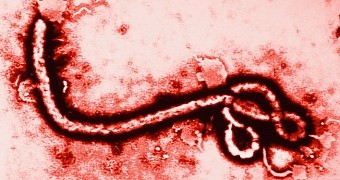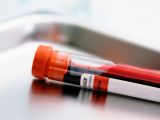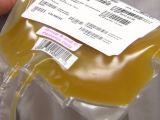The Ebola epidemic in West Africa is no longer making headlines every other day, but this does not mean that it has come to an end or that specialists have finally figured out how to save those who come to be infected by the deadly virus.
The somewhat good news is that, apparently, some progress has been made. Thus, back in November, it was announced that an experimental Ebola vaccine had been found to safe and effective in people.
Besides, more recent news says that presently doctors in West Africa are administering blood and plasma collected from Ebola survivors to folks carrying the virus in their body in an attempt to help them survive the disease.
It is understood that this series of clinical trials that boil down to using survivors' blood and plasma to treat new Ebola cases is the first of its kind to have until now been rolled out in West Africa.
Whether blood and plasma taken from Ebola survivors can in fact help others flush the deadly virus out of their body without developing any serious health complications in the process remains to be seen, Nature informs.
Using blood and plasma to treat Ebola patients
The specialists behind this series of clinical trials now ongoing in West Africa explain that the reason they are administering blood and plasma from survivors to new Ebola patients is that these bodily fluids contain antibodies well equipped to handle the virus.
The idea is that, since these antibodies have already proved effective in ridding one individual of the Ebola virus, it might be possible to put them to work saving other people's life as well. However, it is still unclear whether this treatment option actually works.
A clinical trial that began in Liberia last week benefits from funding provided by the Bill & Melinda Gates Foundation, which has until now agreed to offer scientists working on developing and testing Ebola drugs and treatments $5.7 million (€4.6 million).
As part of this research project, Ebola patients will be transfused blood and plasma from survivors and then closely monitored to determine whether the treatment proves effective in lowering their viral load. Several patients will only be provided with standard care and will serve as a control group.
Later this year, yet another clinical trial will begin in Guinea. This other research project has already secured $3.6 million (€2.9 million) in funding from the European Commission and will involve somewhere between 200 to 300 Ebola patients.
The perks of using blood and plasma to treat Ebola
Specialists say that, although it is true that some progress has been made when it comes to developing Ebola vaccines and treatments, the fact of the matter is that it will surely be a while until these treatment options can be made available to the general public. Blood and plasma, on the other hand, are not very difficult to come by.
Hence, if it is indeed true that Ebola antibodies collected from survivors can help treat new patients, this means that the epidemic now ongoing in West Africa could be halted or at least put on a thigh leash in just a short while.
Interestingly enough, researchers say that using plasma to treat Ebola is preferable to using blood. This is because plasma can be kept in storage for about one year and blood for just a month or so. Besides, people can donate plasma once every two weeks, but can only donate blood once every four months, maybe three.

 14 DAY TRIAL //
14 DAY TRIAL // 



